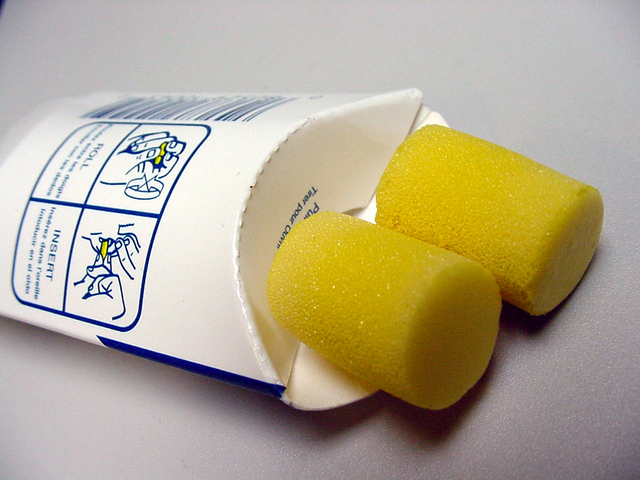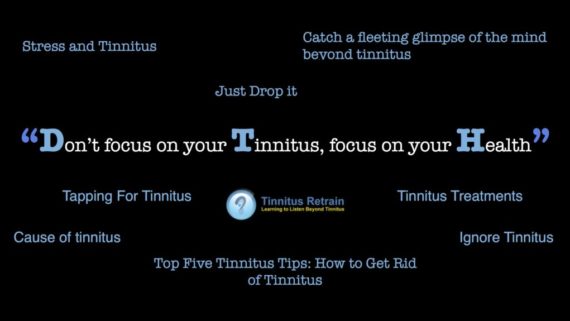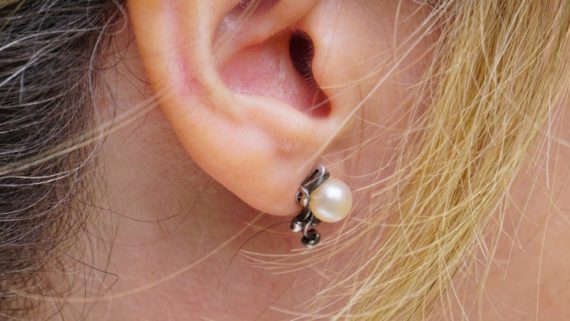Find out if your work is causing tinnitus
Unfortunately tinnitus education tends to take place after and not before one has acquired tinnitus. Many suffering from tinnitus can trace the roots of their troubles to their workplace.
Noise exposure at work causes millions of people to eventually develop tinnitus. The causes are as wide ranging as the employment of those effected. However there are many things you can do to limit your exposure and prevent tinnitus from developing in the first place.
If you have already developed tinnitus, do not be fooling into thinking that these rules do not apply to you, as you’ll learn below they most certainly do. There is still a lot you can do to improve or even eradicate your tinnitus situation.
Is your work causing tinnitus? Arm yourself with the statistics
Regardless of your line of work there are steps you can take today to prevent developing hearing loss and tinnitus in the workplace and we shall go over these in just a moment. But first lets explore the many culprits of noise exposure and potential tinnitus causes at work and see if you are running the risk of developing hearing damage and tinnitus later on in life.
So as you already probably know noise is measured in units called decibels and they go from a scale of zero (the quietest) to 140 (the loudest)
Hearing loss and subsequent tinnitus can occur with regular exposure to noise levels of 110 decibels or more for periods longer than one minute.
As a recommendation please do not expose yourself to more than 15 minutes of unprotected exposure to 100 decibels. Over a long period exposure to 80-85 decibels can cause hearing loss and tinnitus too.
You might be surprised to learn what can cause hearing damage
Here is a list of common daily sounds, which you might be exposed to in decibels along with the recommended (maximum) exposure time.
- City traffic from inside your car 85dB = 8hr recommended exposure
- Bulldozer 88dB = 4hr recommended exposure
- Jazz concert 91dB = 2hr recommended exposure
- Lawn mower 94dB = 1hr recommended exposure
- Nightclub 97dB = 30mins recommended exposure
- Paramedic driver 100 dB = 15 mins recommended exposure
- Rock concert or leaf blower 115 dB = 30 seconds recommended exposure
Here is a list of common noises you might be exposed to at work with their applicable decibel level:
(Remember noise levels of 130 decibels or over will cause pain and will likely cause immediate hearing damage.)
- 40dB quiet office, library
- 50dB large office
- 65 – 95dB power lawn mower
- 80dB manual machine, tools
- 85dB handsaw
- 90dB tractor
- 90dB – 115 subway
- 95dB electric drill
- 100dB factory machinery
- 100dB woodworking class
- 105dB snow blower
- 110dB power saw
- 110dB leaf blower
- 120dB chain saw, hammer on nail
- 120dB pneumatic drills, heavy machine
- 120dB jet plane (at ramp)
- 120dB ambulance siren
- 125dB chain saw
- 130dB jackhammer, power drill
- 130dB air raid
- 130dB percussion section at symphony
- 140dB airplane taking off
- 150dB jet engine taking off
- 150dB artillery fire at 500 feet
- 180dB rocket launching from pad
Did you know?
- Four million workers go to work each day in damaging noise. Ten million people in the U.S. have a noise-related hearing loss. Twenty-two million workers are exposed to potentially damaging noise each year.
- In 2007, approximately 23,000 cases were reported of occupational hearing loss that was great enough to cause hearing impairment.
Reported cases of hearing loss accounted for 14% of occupational illness in 2007.
- In 2007, approximately 80% of the cases involving occupational hearing loss were reported among workers in the manufacturing sector.
Fact:
It must be emphasized that although sudden, traumatic noise exposure may cause immediate hearing loss. Most occupational hearing loss occurs gradually and insidiously so that workers are unaware they are losing their hearing.
New employment and hearing loss
Simple things go a long way
Statistics and research tell us that the greatest risk of hearing loss is at it’s highest during the first 10 years of exposure to a new sound. This means protection and prevention is very important for new workers. And with continued exposure, this hearing loss will also affect those frequencies most needed to understand speech. This highlights the need to protect and prevent for workers in their mid/late careers (in other words it’s never too late to take protective measures.)
So what can we do?
Education and good work habits will prevent you having to ask is your work causing tinnitus?
Reducing and eliminating the sources of noise
In order to make sure you’re never asking the question “is your work causing tinnitus?” The first and most important thing employees need to do is never wait for your employer to protect you from potentially harmful noise exposure. Take responsibility for yourself and take the necessary precautions, regardless of what is laid out for you.
I’m sure your employer will have the provisions you need, but do not depend on it, ultimately and initially you are in charge of your health. So take matters into your own hands. You can make suggestions to your employer if they haven’t already implemented the noise reduction methods listed below. Plus request the highest quality protective ear wear.
So start by assessing your work environment and taking note where and when you’re exposed to potentially damaging volumes. Look for ways to reduce noise levels or further ways to protect your ears.
These control measures may include:
- Implementing a quieter way of doing you work
- Using quieter pieces of equipment
- Introducing a low-noise purchasing policy for new equipment
- Improving maintenance procedures – good maintenance can reduce noise from friction and moving parts.
- Fitting silencers to exhausts
- Isolating or damping vibrating machinery by fitting anti-vibration mounts
- Adding sound absorbing material to vibrating panels to reduce vibration
- Enclosing noisy machinery
- Erecting barriers and screens around noisy machinery and processes
- Positioning noisy machinery and processes well away from workers
- Using sound absorbing materials to reduce reflection of sound within buildings
- Limiting access by keeping people out of noisy areas
- Limiting time spent in noisy areas.
As well as muting your equipment make sure you have the highest quality headphones or earplugs and wear them always around noisy equipment.
Before starting any new job, considering a new career change or beginning a new job ask yourself “Is your work causing you tinnitus?”
Take Precaution and prevent workplace tinnitus
Workplace hearing loss and workplace causes tinnitus is 100% preventable if you and your employer take the appropriate steps.
Is your work causing tinnitus? The importance of good habits
It’s easy to become a statistic, especially when noise induced hearing loss and tinnitus is such a slow occurring condition, however, but by forging good habits early you should be able to ensure you are protected in the long term.
But what if you already have tinnitus?
As we mentioned earlier, most damage is done within the first ten years of continuous noise exposure and lack of protection but with continued exposure, hearing loss will affect frequencies most needed to understand speech. So, it is very important to form good habits regardless of age or employment duration.
However if you’re already suffering from tinnitus caused by your workplace you want to be taking proactive measures right now, as you need not suffer.
What is TRS? And why do I need it?
If you’re currently suffering from tinnitus, it’s important to sew the seeds of habituation early. Many people are afflicted by tinnitus, but not everyone afflicted actually suffers. Why is this and how do I become one of the majority who do not suffer?
“As you might know 50 million Americans are afflicted by tinnitus, however only a small proportion actually suffer from tinnitus. This fact has nothing to do with the tinnitus victim’s volume, pitch, tone or type, but everything to do with the individual’s perception and nervous/emotional response to the stimuli. Alter the perception and you’ll rewire the response”
Tinnitus is a multi-faceted condition, which straddles the physical, psychological and emotional realm. TRS is an effective, simple, non-surgical, non-medical approach to tinnitus suffering based on tried and true techniques. TRS is a growing option or alternative for those who may be considering medication or invasive surgery.
The Tinnitus Retrain System is not a ‘quick fix fad of the moment’ nor is it a gimmick or ‘snake oil’ cure. There are no drugs involved, no fancy diets or detox regimes. TRS is practical and based in cognitive theory, the foundation of the program is a unique, powerful combination of therapeutic techniques, methods and lifestyle modifications. It is the only video assisted self-help product of its kind on the market today.
The methods behind the Tinnitus Retrain System evolved from the accepted belief that tinnitus is in fact an emotionally subjective condition. Therefore we can conclude that the symptoms relating to this condition can effectively be dealt with by rewiring the nervous response to the sounds in the ears – i.e. teaching the mind to bypass the sounds, rendering them irrelevant to the sufferer.
As with most things in life, perseverance and patience will get results, we give you the blueprint but the rest is up to you. The question is, are you ready? Have you had enough?
So regardless of whether you’ve acquired tinnitus through your work or otherwise, the fact remains you have tinnitus and believe it or not, you DO NOT NEED TO SUFFER.













Comments
Comments are closed.